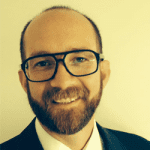High Needs Indigenous Patients Waiting Too Long for Services

11 July 2018 at 3:46 pm
Indigenous people with “high” health needs had to wait too long for some services, says an annual snapshot of Aboriginal and Torres Strait Islander health organisations.
The Australian Institute of Health and Welfare this week released its ninth annual survey of Aboriginal and Torres Strait Islander health organisations.
This report provides information on 266 organisations funded by the Australian government to deliver health services to Aboriginal and Torres Strait Islander people, covering the services they provide; client numbers, contacts and episodes of care; staffing levels; and service gaps and challenges.
“Some organisations indicated that clients with high needs had to wait too long for some services, in particular to access dental services and mental health professionals,” the report said.
“For example, 50 (27 per cent) of organisations providing on-site or off-site access to dental services still felt clients with high needs often had to wait a clinically unacceptable time for dental services.
“This was higher in organisations in ‘remote’ (44 per cent) and ‘very remote’ (34 per cent) areas.”
Most of the organisations (94 per cent) funded to provide primary health care also provided social and emotional wellbeing or mental health or counselling services, and over half (57 per cent) had mental health promotion activities in 2016–17, the report said.
However, nearly two-thirds of organisations still reported mental health and social and emotional wellbeing services as a service gap (63 per cent).
This was even higher (78 per cent) in organisations funded to provide substance-use services, but not primary health care.
About 7,600 full-time equivalent staff were employed by the organisations providing primary health-care services and just over half of all staff (53 per cent) were Aboriginal and/or Torres Strait Islander.
Nearly half (46 per cent) of the organisations funded to provide primary health-care services to Aboriginal and Torres Strait Islander people did so in “remote” or “very remote” areas and they saw around 168,100 (38 per cent) of clients.







